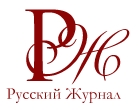Interview with Julia Netesova from Russian ’Russki Zhurnal’ (www.russ.ru)  on December 20th, 2010.
on December 20th, 2010.
Netesova: There is a point of view that in 2010 was a year of the definite end of the opposition (systemic and non-systemic, i.e. liberal opposition) in Russia. Do thousands of young and angry people from the Manezhnaya Square constitute new Russian opposition?
Mangott: Demonstrating discontent with government policies and the incumbent political elites is an essential element of a democracy. Its impact on politics, however, depends both on the scope of societal support for the dissenters and the degree of responsiveness or repression by the government. Dissenters need to be full of integrity and credibility and promote a broad agenda as against narrow elitist interests.
Governments usually have four options to deal with dissenters: deprive opposition movements of visibility in the (electronic) media, which requires state control over the main media holdings; another option is to discredit the core figures of the opposition movement; a third option is to stifle and harass any opposition by repressive measures, which requires tight control over the law enforcement agencies; a final option is to co-opt core figures of the dissident circles and to entrust them with influential positions in the government.
In my view, the Russian ruling class is making use of all four strategies, with variations in the mix over time. In addition to restrictions from above, however, the dissenters still lack a charismatic and unifying leader; it support base is still small, the social milieu of the opposition actors is still narrow and almost negligible beyond the larger towns. Besides, its focus on civil and political rights does not actually meet the core concerns of many Russians, which are jobs and income to make for a decent living.
Netesova: Democracy says that every power should be balanced by opposition, the Russian power as well. Should the power by using its legal institutes get involved in the process of forming the opposition?
Mangott: Liberal democracies are based on indivisible human and civil rights, which enable, among others, freedom of opinion and association. In principle, the rule of law provides an even and fair playing field for the articulation and aggregation of ideas and goals. This said, it is not the task of the incumbent elites to foster or even create dissenting parties or organizations. In democracies the ruling power must not take any decisions which might ultimately restrict the freedom of expression and organization. The ruling power’s task is not to encourage, but not to prevent or restrict political opposition. The idea, that the incumbent elites form its own opposition is bizarre, artificial and manipulative; it demonstrates a perverted logic of political competition in a free society.
Netesova: The center of the party system in Russia is “United Russia” which is criticized by many even from within. Do you think “United Russia” one day may give birth to opposition forces?
Mangott: If Edinaya Rossiya were a political party with a distinct political platform this could possibly happen. If factions based on different opinions were to emerge within this ‘political machine’ (I would rather not call it a political party), this could eventually tear it apart and give birth to quite many ideologically distinct political groupings. However, Edinaya Rossiya is not a political party, but an organization bringing together officials of both the federal and regional levels. It is a network of state officials, and a highly sophisticated tool for implementing decisions of the Russian government. It is a recruitment base for the ruling elites and it is the tool for carving out careers. It is not, however, a political party which devices political strategies and ideas on its own. So Edinaya Rossiya will eventually not split along ideological lines but will dismember if the composition of the ruling elites will change as a result of clannish infighting and the emergence of new patrimonial leaders.
Netesova: Can you think of the most important political problem that Russia will inherit in the next decade from the previous one?
Mangott: The major task of the coming years is to enable and facilitate the emergence of opposition movements and clubs. The centralized and authoritarian control of the political society must be, albeit gradually, abandoned. Such transitions to more liberal concepts of power are risky, bumpy and protracted. These might unleash destabilizing forces but are nevertheless unavoidable, if the Russian political and civil society is to prosper in the foreseeable future. Without such political pluralism stagnation will eventually become the defining characteristics of Russian politics.
Netesova: This September Russia hosted a World Global Policy Forum in Yaroslavl – President Medvedev’s initiative which gathered some of world’s most influential politicians and experts. Its main topic was “Modern State: Standards of Democracy”. Can you think of any other topic that addresses the challenges of the modern state and which deserves being discussed in Yaroslavl in 2011? Which themes can be interesting for the conference sessions? Which events do you think should be included into the conference program?
Mangott: I consider it of utmost importance to debate various concepts of the accountability of government and transparent decision making in state institutions. In addition, it needs to be discussed, by which formal legal institutions and societal movements both accountability and transparency can be promoted. It needs to be discussed by which measures destabilizing trends and effects, which most likely will occur as a result of gradual political liberalization, can be channeled constructively. Furthermore, the responsiveness of the political elites must be strengthened. It is of utmost importance to discuss how these objectives can be achieved in reasonable time.
